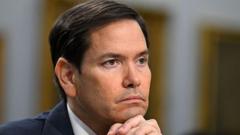The Trump administration's policies have led to a decline in employment opportunities for foreign scientists, prompting many to seek positions in other countries, diminishing the U.S.'s historic leadership in science and research.
U.S. Scientific Leadership at Risk as Researchers Seek Opportunities Abroad

U.S. Scientific Leadership at Risk as Researchers Seek Opportunities Abroad
Political instability and reduced support under the Trump administration are driving international talent away from American labs.
For decades, the United States has been a beacon for aspiring scientists, with many international graduates, particularly from burgeoning research hubs like Bangalore, India, eyeing American labs to launch their careers. However, recent political shifts and policy decisions under the Trump administration have dramatically altered this landscape.
Dr. Raj Ladher, a respected professor at the National Center for Biological Sciences in Bangalore, recently surveyed his 30 Ph.D. students. Only one reported securing a role in the U.S., a stark departure from the norm where U.S. opportunities were seen as the gold standard for researchers. This year has ushered in a wave of disillusionment as many students now gravitate towards countries such as Austria, Japan, and Australia, or opt to remain in India rather than chase fading American dreams.
Concerns are growing among American scientists who fear that the federal government's visa restrictions, which hinder foreign student intake, combined with consistently slashed research budgets, may precipitate a downturn in U.S. scientific innovation. David W. Hogg, a physicist and data science professor at New York University, emphasized the ramifications of such policies, warning that diminishing collaboration with international experts could render entire fields of research, including his own, untenable.
The brain drain induced by the current administration could jeopardize America’s long-held supremacy in various scientific disciplines, marking a potential shift in the global scientific landscape. The cascading effects of these policies pose serious questions about the future of research and innovation in the United States, as once-promising international talents choose to set their sights elsewhere.






















